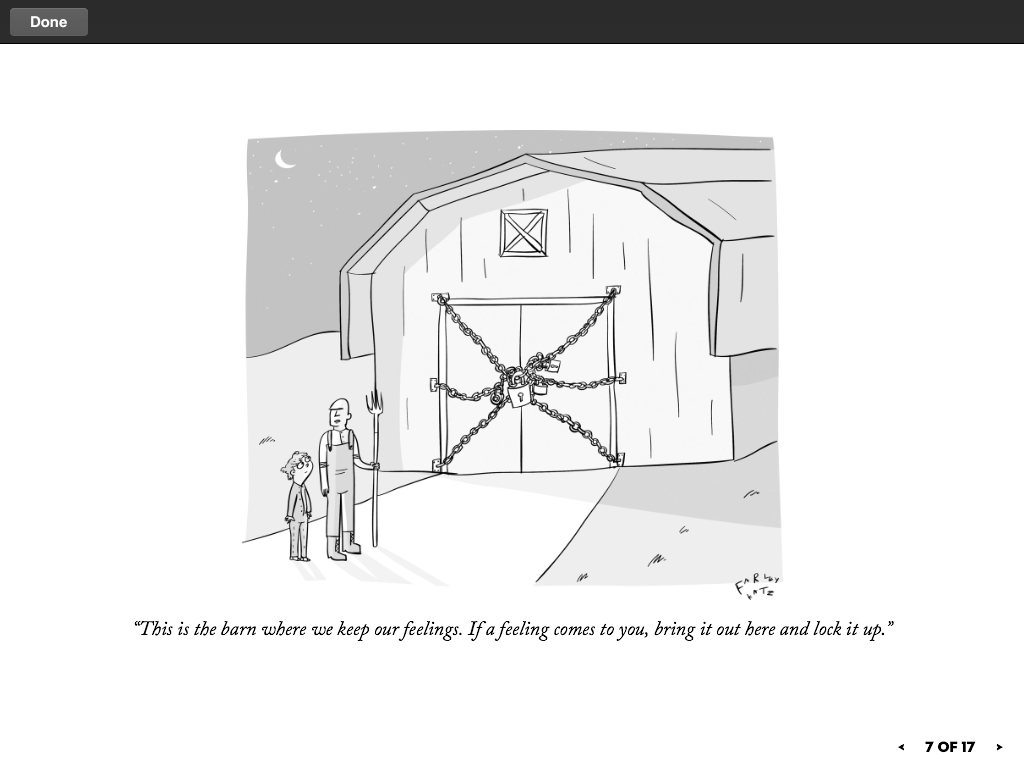I recall watching Robin Williams interviewed at the desk on The
Tonight Show years ago when Johnny Carson was still hosting. Williams was absolutely brilliant. Carson skillfully played the straight man,
and Williams changed accents, characters, pace, gesture styles every few
seconds. It was amazing to watch but at
the same time it deeply saddened me.
Williams couldn’t NOT do it; because he could please, he couldn’t
stop. He couldn’t just be himself, and
to me he seemed manic, desperate and lost.
Of course I have no idea if Williams’s abilities had
anything to do with his battle with depression and his eventual suicide. But I wouldn’t be surprised if his power to
please made it more difficult for him to stay in touch with his inner
self.
 Celeste Ng’s first novel, Everything I Never Told You tells
the story of a teenage girl with the power to please her family (her mother in
particular), and also to serve as the glue that held together her fragile
immediate family. In so doing she sacrificed
her own pleasures and goals, her own well-being, and ultimately her life. The story touches on a number of modern
themes, including cross-cultural issues and parenting styles. The approach is very traditional, a straightforward story told in a straightforward way. We learn about the main character from several points of view. In the end we piece it all together. The writing is serviceable if not remarkable. The plot unfolds predictably. Like The Lovely Bones, we know from the
beginning that the girl is dead. The book is about how and why that comes about.
Celeste Ng’s first novel, Everything I Never Told You tells
the story of a teenage girl with the power to please her family (her mother in
particular), and also to serve as the glue that held together her fragile
immediate family. In so doing she sacrificed
her own pleasures and goals, her own well-being, and ultimately her life. The story touches on a number of modern
themes, including cross-cultural issues and parenting styles. The approach is very traditional, a straightforward story told in a straightforward way. We learn about the main character from several points of view. In the end we piece it all together. The writing is serviceable if not remarkable. The plot unfolds predictably. Like The Lovely Bones, we know from the
beginning that the girl is dead. The book is about how and why that comes about.
I did learn a few things about my own past. I too had the power to please my parents, and
most often I couldn’t resist it, even when I should have. I can blame my parents, who to a large extent
tried to live through my successes, but I also used their tendencies to avoid
my own difficulties, and in the long run those pressures and consequent
confusion and pain were my own doing, not theirs. I don’t think I particularly longed for the
applause, but they wanted it for me, and I wanted them to be happy. If I could provide that, I did, even when I
knew (or at least sensed) that there were better paths for me as an individual.
It’s hard enough for an adult to skillfully draw the
boundaries between self and others, to navigate the waters in a way that
provides both self-fulfillment and strong connections with others. Children need good models in that way; they
need to see the important adults around them make good choices for themselves
and lead their lives with appropriate focus and grace. When parents don’t provide good models,
children often make bad choices, or at least choices that may work short-term,
but in the long run lead to serious problems.
Ng’s book is an easy read, and I think worth the time if
these issues interest you. If not, move
on.






